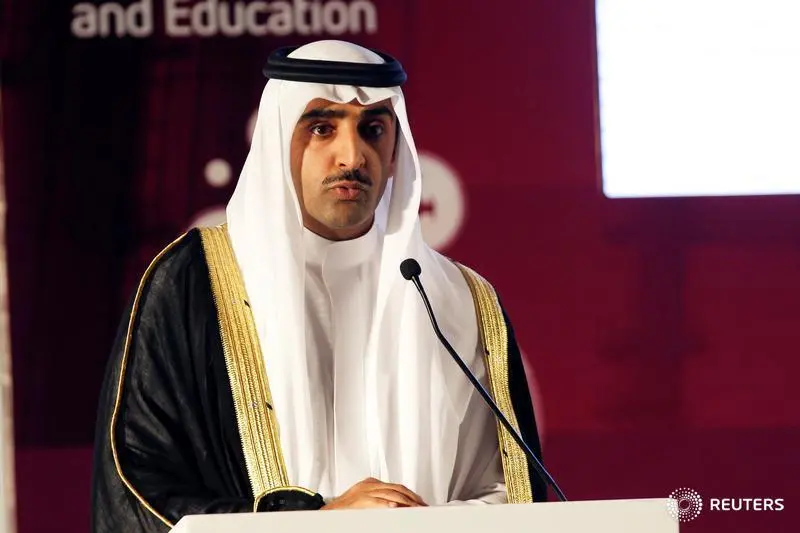PHOTO
MANAMA: Bahrain is talking to U.S. oil companies with shale oil expertise about developing a huge oil and gas field discovered last year, and hopes to have an interested company by the end of the year, the oil minister said on Tuesday.
Last April Bahrain said it had discovered its largest oil and gas find since 1932 off its west coast, estimated to contain at least 80 billion barrels of tight oil.
The first test well is being drilled now, Oil Minister Sheikh Mohammed bin Khalifa Al Khalifa told Reuters in an interview. "We should have it flowing ... maybe by the end of April."
Tight oil is a form of light crude oil held in shale deep below the earth's surface that is extracted with hydraulic fracturing, or fracking, using deep horizontal wells.
Al Khalifa said the recovery rate for shale deposits is around 5-15 percent of available reserves.
He said Bahrain is targeting major U.S. oil companies and independent companies which have "operating capabilities in U.S. shale, because tight oil is very much a U.S. phenomenon now".
No deal for the tight oil areas has been signed yet, he said.
The small non-OPEC Gulf oil producer, with around 124.6 million barrels of proven reserves, gets its oil revenue from two fields: the onshore Bahrain field, and the offshore Abu Safah field, which is shared jointly with Saudi Arabia.
The Bahrain field produced around 50,000 bpd in 2015, according to the U.S. Energy Information Administration.
Bahrain and Saudi Arabia split annual revenues from the 300,000 bpd Abu Safah field, where production is overseen by Saudi Aramco.
Bahrain does not have the vast oil wealth of other Gulf Arab states and its revenue has declined since the 2014 slump in oil prices.
Gulf allies Saudi Arabia, Kuwait and the United Arab Emirates agreed a $10 billion aid package in October and Bahrain has embarked on a fiscal reform programme to try to eliminate its budget deficit by 2022.
Al Khalifa also said state-run Bahrain Petroleum Company (Bapco) is "a few weeks away" from financial close on funding for the capacity expansion of its existing Sitra oil refinery.
Five export credit agencies from Korea, Spain, Italy and Britain, alongside international and Bahraini banks will provide more than $4 billion in financing, he said.
The expansion will increase Bapco's refining capacity to around 400,000 barrels per day, from around 270,000.
Around 88 percent of the crude that Babco refines comes from neighbouring Saudi Arabia, and the rest from Bahrain's field.
(Editing by David Evans) ((lisa.barrington@thomsonreuters.com;))





















